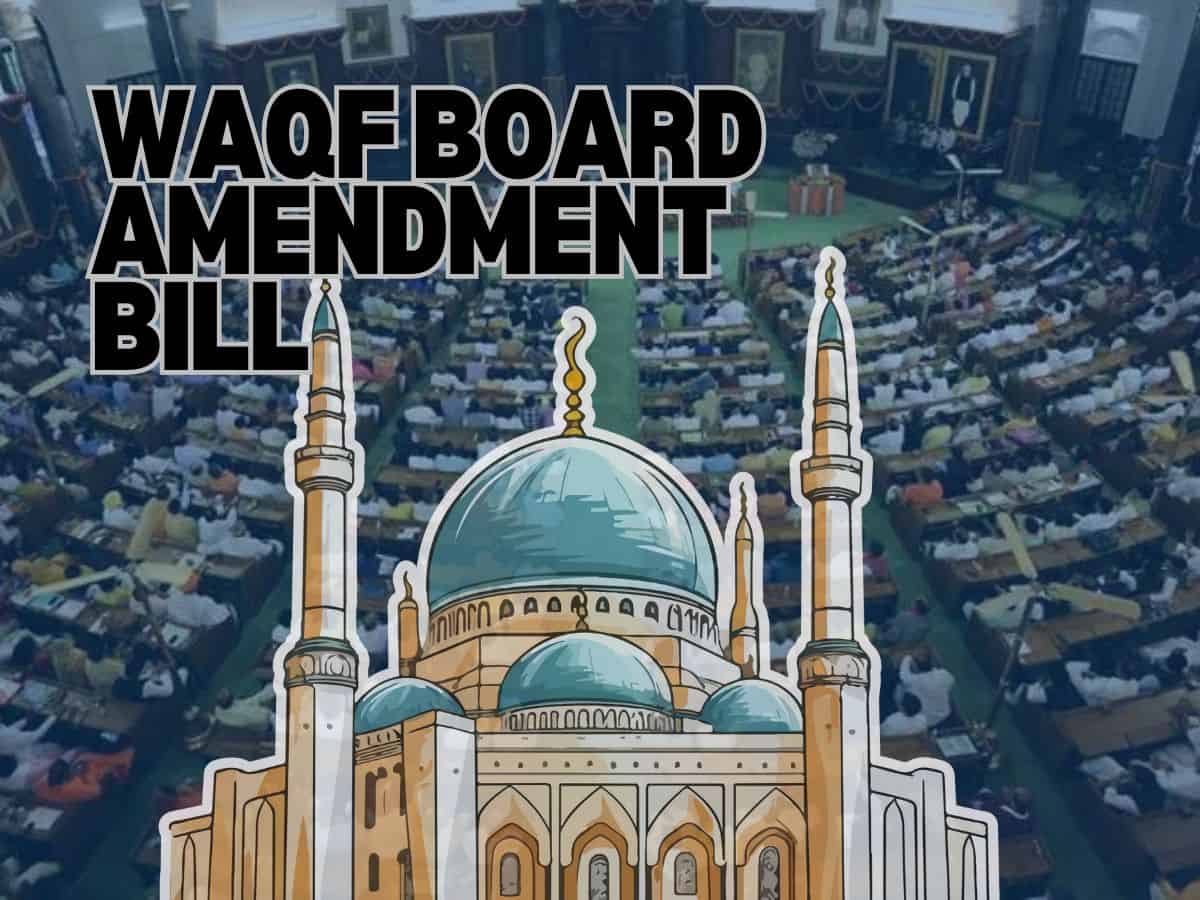
New Delhi: A parliamentary panel examining the Waqf (Amendment) Bill has received a staggering 1.2 crore email responses amid campaigns launched by rival groups to ratchet up support for their respective viewpoints regarding the draft law.
Parliamentary sources said the Joint Committee on the Waqf Amendment Bill, chaired by Bharatiya Janata Party (BJP) leader Jagadambika Pal, has also received 75,000 responses with documents to support the respective views, prompting the panel to seek additional staff from the Lok Sabha Secretariat.
“We have deployed 15 additional personnel to go through the email responses and categorise and document those,” one of the sources said.
Islamic preacher Zakir Naik has appealed to his supporters to oppose the Waqf (Amendment) Bill by sending responses to the parliamentary panel examining the draft law.
The appeal from Naik has triggered a counterreaction, and several Hindu groups too have urged their supporters to write emails to the committee in support of the bill.
Last month, the committee sought written suggestions from the general public, NGOs, experts, stakeholders, and institutions on the bill. In a statement, the committee asked people to send their comments to the joint secretary, Lok Sabha Secretariat, Room No. 440, Parliament House Annexe, New Delhi-110001, or mail those to jpcwaqf-lss@sansad.nic.in.
The committee is also embarking on a five-city tour to seek feedback from government officials, legal experts, Waqf Board members, and community representatives.
The tour, beginning September 26, will take the committee to Mumbai, Ahmedabad, Hyderabad, Chennai, and Bengaluru.
Through these consultations, the panel will examine key aspects of the Waqf (Amendment) Bill, including the digitisation of records, more rigorous auditing processes, enhanced legal measures for dealing with encroachments, and the decentralisation of the Waqf management.
The committee’s nationwide consultations are aimed at gathering feedback from government officials, legal experts, Waqf Board members, and community representatives from the five states as well as from Union territories to ensure a comprehensive approach to reforming the Waqf Act.
What is the Waqf Amendment Bill, 2024?
Under the Bill, Waqf properties must be registered with the district collector’s office for evaluation. It specifies that any property identified or declared as Waqf property by the government, before or after the Act’s commencement, will not be considered waqf property. The district collector will have the final authority to determine whether a property is waqf or government land. Once decided, the collector will update the revenue records and report to the state government. The property will not be recognized as Waqf until the collector’s report is submitted.
Furthermore, disputes with Waqf board decisions can now be appealed to high courts. The Bill also proposes removing provisions that currently allow properties to be considered Waqf based on oral declarations or disputes, which were previously acceptable under Islamic law until formal documentation (waqfnama) was established. Without a valid waqfnama, a property will be deemed suspect or disputed and cannot be used until the district collector makes a final decision.
What is Waqf property?
A Waqf property is a moveable or immovable asset dedicated to God for charitable purposes through a deed or instrument. This practice predates formal documentation, so properties used for a long time can also be recognised as Waqf properties.
Waqf properties can serve either public charitable purposes or be held privately to benefit an individual’s descendants. They are non-transferable and held perpetually in the name of God. The income from Waqf properties typically supports educational institutions, graveyards, mosques, and shelter homes, benefiting many Muslims



